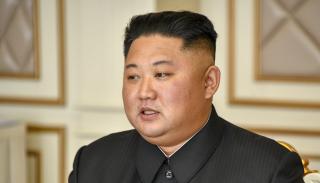
Breadcrumbs navigation
Role and relation in Confucian IR: Relating to strangers in the states of nature
Watch Chih-yu Shih discuss his new article from BISA journal Review of International Studies (RIS). This handy five-minute summary will allow you to digest all the key points.
Chih-yu Shih's article uses role theory to bridge the gap between the Confucian and Western conceptions of relationality, whose practitioners regard each other as strangers. The article uses Kim Jong-un of North Korea as its case. Confucian relations propose that, for all nations, the necessity of having a certain role relation is a more important agenda than insisting on exactly what role to take.
BISA members receive access to RIS (and our other journal European Journal of International Security) as a benefit of membership. To gain access log in to your BISA account and scroll down to the 'Membership benefits' section. If you're not yet a member join today.
Full abstract
DOI: https://doi.org/10.1017/S0260210521000322
The literature on International Relations theory has yet to align relational theory with role theory, despite the fact that these two theories share so much epistemological common ground. This article uses role theory to bridge the gap between the Confucian and Western conceptions of relationality, whose practitioners regard each other as strangers. With the support of role theory, the comparative analysis of relationality in this article has mainly focused on two different types of relations: prior rule-based relations and improvised relations. The differences in the cultural preparation for these two relations partially explain the plurality of the relational universe and the perception of stranger. Role theory is one way to reconnect the seemingly irreconcilable relational universes. To illustrate the value of a composite agenda of relational theory and role theory, the article will use Kim Jong-un of North Korea as its case. Confucian relations propose that, for all nations, the necessity of having a certain role relation is a more important agenda than insisting on exactly what role to take.


